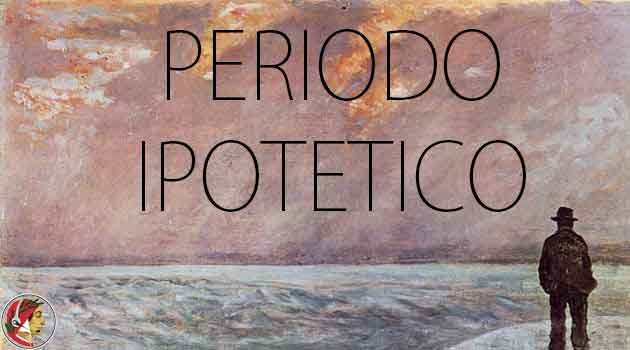Italian conditional sentences are the so called “periodo ipotetico”. There are three types of conditional sentences: realtà, possibilità and irrealtà. Solve the quiz
- Se avessi tempo, andrei in vacanza.
Here’s the plain grammar. The periodo ipotetico is the combination of two sentences: a subordinate clause expressing a possibility and a main clause expressing the outcome. The conjunction “se” (if) will help you to build Italian conditional sentence (and English too…).
Andrei in vancanza makes perfect sense alone, so it’s the main clause. “Se avessi tempo…” needs the main clause to make sense, so it’s a subordinate clause. Depending on the degree of possibility of the subordinate clause, we can have three different types of “periodo ipotetico”.
Periodo ipotetico della realtà
When the subordinate clause is very likely to happen, we have a “Periodo ipotetico della realtà” or “di primo tipo – type 1”. We can use the familiar tenses of the indicativo for the subordinate (the possible event) and the indicativo or imperativo for the main clause (the outcome). Given the right condition, the outcome will be pretty much sure. In other words:
-
Se ho fame, mangio.
-
Se non ho soldi, non vado in vacanza.
-
Se mi ami, sposami!
-
Se comprerò una macchina nuova, butterò via quella vecchia.
-
Se avrò ancora il raffreddore, non andrò in ufficio.
Periodo ipotetico della possibilità
In this case, the subordinate clause is expressing an open possibility. The combination of tenses here is a congiuntivo imperfetto describing the condition, and the condizionale semplice describing the result. If the result is a suggestion or an order, we can use the imperativo.
-
Se Laura mi chiedesse di andare al cinema, accetterei.
-
Se potessi cambiare macchina, comprerei un’Alfa Romeo.
-
Se ti tagliassi i capelli, saresti più carina.
-
Se mi telefonasse Dario, digli di richiamare.
-
Nel caso tu arrivassi in ritardo, fammi sapere.
Periodo ipotetico della impossibilità
Or irrealtà. The condition expressed in the dependent clause is not possible, usually it’s in the past. The standard combination of tenses is the congiuntivo trapassato for the condition and the condizionale for describing the outcome: condizionale semplice if the impossible consequence is imagined in the present, condizionale composto if the consequence is in the past.
-
Se avessimo cambiato casa, avremmo pagato tanti soldi.
-
Se Luca avesse studiato di più, adesso avrebbe un ottimo lavoro.
-
Se i miei genitori non si fossero incontrati, io non esisterei.
-
Se da piccolo mi fossi allenato di più, sarei diventato un calciatore famoso.
-
Se non mi avesse aiutato Luigi, a quest’ora il bagno sarebbe ancora da riparare.
Periodo ipotetico in spoken Italian
There’s a lazy but very common use of the imperfetto in spoken Italian, replacing the condizionale and congiuntivo in the third periodo ipotetico. Let’s take for example the sentence:
- Se da piccolo mi fossi allenato di più, sarei diventato un calciatore famoso.
It can be converted into:
- Se da piccolo mi allenavo di più diventavo un calciatore famoso.
Again, that’s sloppy grammar, wrong, but widely accepted in the spoken language, only in informal situations. You should learn the correct way first, and use this only as a conversational alternative. Anyway, I don’t want to reinvent the wheel, so I’ll take the examples i created above an re-use them
-
Se cambiavamo casa, pagavamo tanti soldi.
-
Se Luca studiava di più, adesso aveva un ottimo lavoro.
-
Se i miei genitori non si incontravano, io non esistevo.
-
Se non mi aiutava Luigi, a quest’ora il bagno era ancora da riparare.
Thanks for reading. Please solve the quiz. Tutto in italiano.
LOADING QUIZ...

